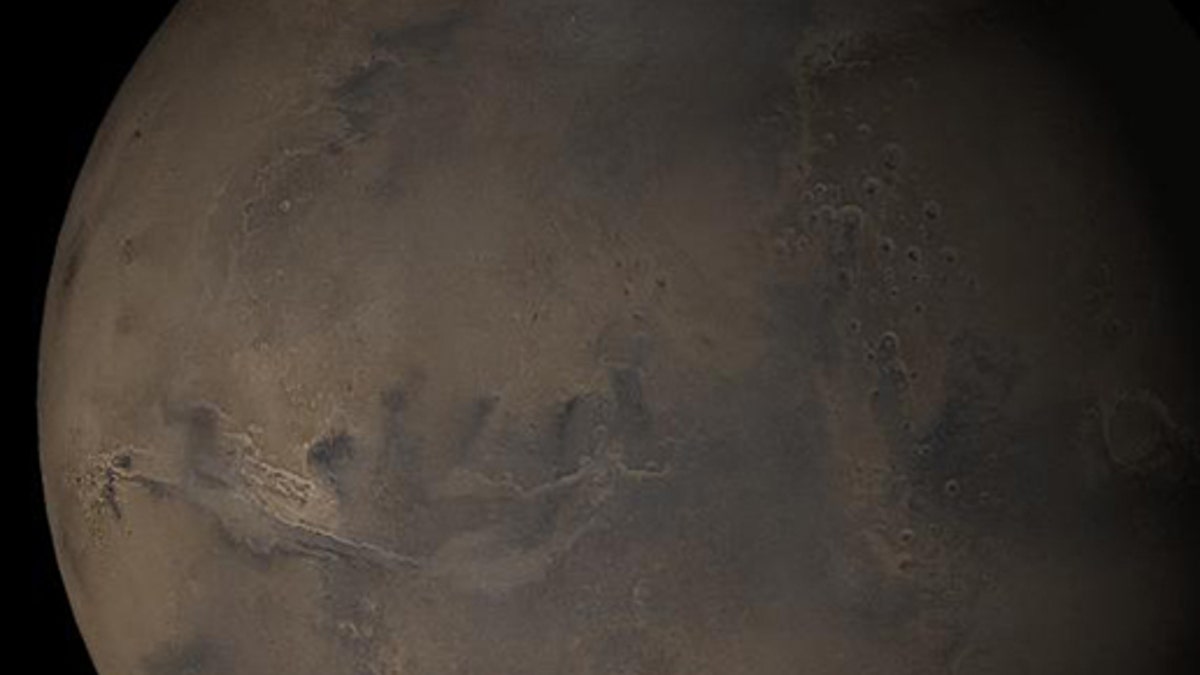
Some scientist from NASA are saying the bugdet will not allow for future missions to Mars. (NASA)
WASHINGTON – Scientists say NASA is about to propose major cuts in its exploration of other planets, especially Mars. And NASA's former science chief is calling it irrational.
With limited money for science and an over-budget new space telescope, the space agency essentially had to make a choice in where it wanted to explore: the neighboring planet or the far-off cosmos.
Mars lost.
Two scientists who were briefed on the 2013 NASA budget that will be released next week said the space agency is eliminating two proposed joint missions with Europeans to explore Mars in 2016 and 2018. NASA had agreed to pay $1.4 billion for those missions. Some Mars missions will continue, but the fate of future flights is unclear, including the much-sought flight to return rocks from the red planet.
The two scientists, speaking on condition of anonymity because they were not authorized to discuss the budget, said the cuts to the Mars missions are part of a proposed reduction of about $300 million in NASA's $1.5 billion planetary science budget. More than $200 million in those cuts are in the Mars program, they said. The current Mars budget is $581.7 million.
"To me, it's totally irrational and unjustified," said Edward Weiler, who until September was NASA's associate administrator for science. "We are the only country on this planet that has the demonstrated ability to land on another planet, namely Mars. It is a national prestige issue."
Weiler said he quit last year because he was tired of fighting to save Mars from the budget knife. He said he fought successfully to keep major cuts from Mars in the current budget but has no firsthand knowledge of the 2013 budget proposal.
Mars "has got public appeal, it's got scientific blessings from the National Academy," Weiler said in a phone interview from Florida. "Why would you go after it? And it fulfills the president's space policy to encourage more foreign collaboration."
Two years ago, President Obama said his ultimate goal was to send astronauts to Mars.
NASA spokesman David Weaver said that, just like the rest of the federal government, the space agency has to make "tough choices ... and live within our means."
To do so, Weaver said in an email, "NASA is reassessing its current Mars exploration initiatives to maximize what can be achieved."
Weaver said the United States is the only country to land on Mars and has a car-sized rover on its way to the planet.
One of the big problems for NASA's science budget is the replacement for the wildly successful Hubble Space Telescope. The James Webb Space Telescope, which would be about 100 times more powerful and would gaze farther into the universe than ever before, is now supposed to cost around $8 billion. It was originally estimated to cost $3.5 billion.
The other big part of NASA science spending — Earth sciences — is not being cut, the two scientists said.








































